ASEAN-India Connectivity
The following remarks were given by Ambassador Rajiv Bhatia, Distinguished Fellow, Foreign Policy Studies, Gateway House as a speaker at the ASEAN-India Business Summit on November 27, 2018.
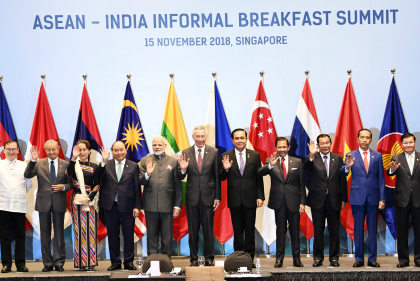 Courtesy: MEA/Flickr
Courtesy: MEA/Flickr
The following remarks were given by Ambassador Rajiv Bhatia, Distinguished Fellow, Foreign Policy Studies, Gateway House as a speaker at the ASEAN-India Business Summit on November 27, 2018.
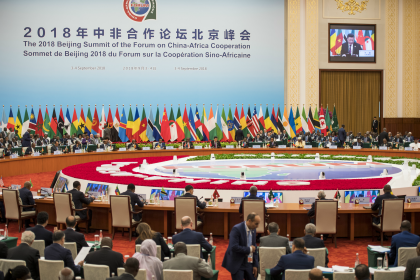 Courtesy: Flickr / Paul Kagame
Courtesy: Flickr / Paul Kagame
China’s footprint in the African continent is growing because it is a zealous summiteer. And now, in response to ‘debt-trap’ criticism, it also appears to be stressing private sector investment in Africa over loans and credit. Are there any takeaways for India in this?
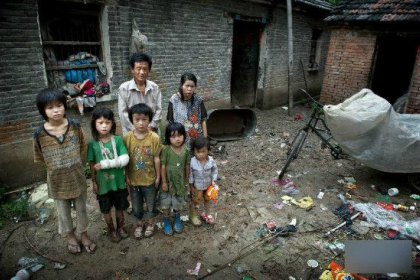 Courtesy: Fair Planet
Courtesy: Fair Planet
China recently celebrated 40 years since it began its successful poverty reduction effort, at a conference in Beijing. While lauding China's efforts, experts do recognise that different formulations work for different countries
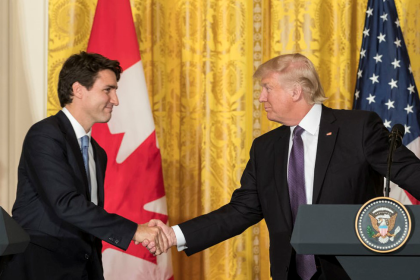 Courtesy: Wikimedia Commons
Courtesy: Wikimedia Commons
The United States, Europe and the Asia Pacific today form Canada’s tripartite foreign policy priorities. The ASEAN is its sixth largest partner, which was not so 20 years ago, but economic engagement with India – still small, compared to China and Japan – has scope to grow
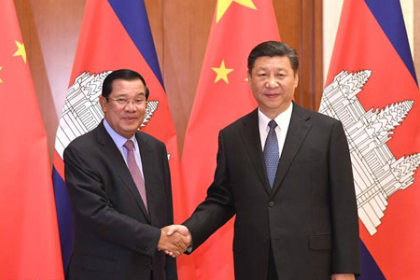 Courtesy: Ministry of Foreign Affairs, China
Courtesy: Ministry of Foreign Affairs, China
In Cambodia, democracy exists only in form. Liberal values, inculcated by the West, take second place to poverty alleviation and employment. Such priorities have affected its diplomatic allegiances while bilateral relations with India have not expanded
 Courtesy:
Courtesy:
TIMES NOW featured our Distinguished Fellow in Foreign Policy Studies, Amb. Rajiv Bhatia on their show to discuss the fourth BIMSTEC Summit. Watch the full episode here.
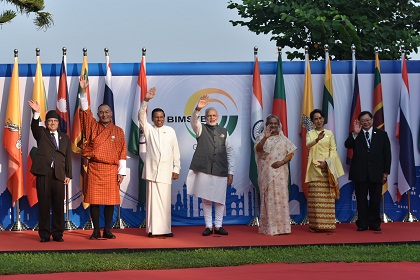 Courtesy: Mea/ Flickr
Courtesy: Mea/ Flickr
The 21-year-old regional organisation, which will hold its fourth summit on August 30-31, was formed because of the opportunities to make headway in economic and social development through cooperation, but it has achieved modest success. It has a relevance independent of SAARC or ASEAN and goals of its own to pursue
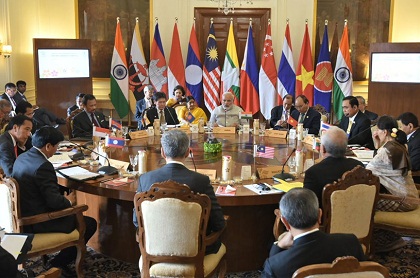 Courtesy: Zee News
Courtesy: Zee News
Indonesia and Malaysia appreciate India’s leadership role in the Indo-Pacific, but are also aware of all that keeps it from delivering on its commitments. A policy visit to the two countries enabled a closer look at some key issues, such as ASEAN’s centrality, the Quad and India’s stand on the Regional Comprehensive Economic Partnership
 Courtesy: Kremlin website
Courtesy: Kremlin website
The annual diplomatic exercise next week takes place amid a complex global political scenario. The western alliance is deeply divided, Brexit is near and equations among the great powers are in a constant state of flux. BRICS may now do well to focus more on internal cooperation than global change
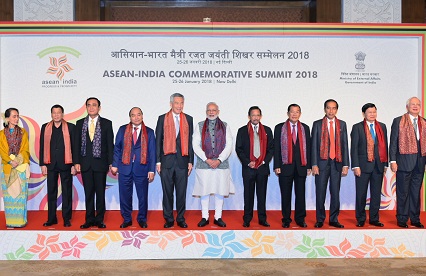 Courtesy: MEA/ Flickr
Courtesy: MEA/ Flickr
Change and uncertainty have marked geopolitical equations in the East Asian segment of the Indo-Pacific in the last six months. India-China relations changed visibly for the better while the U.S.-China trade war became more polarised. The Quad remained inert as did negotiations on the proposed Code of Conduct for the South China Sea. An analysis of some of the major trends